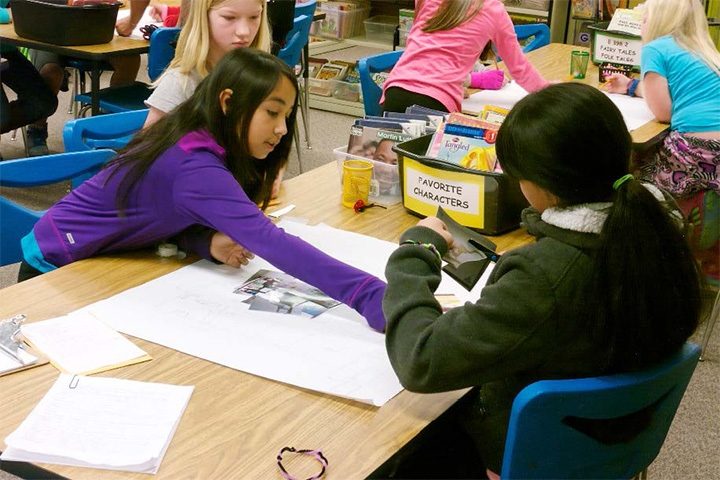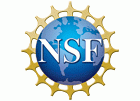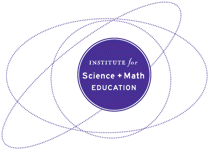How to build an equitable learning community in your science classroom

- Teachers can use these activities to improve equitable opportunities for students.
- District Staff & PD Providers can use these activities and resources, with their embedded reflection questions, in professional learning contexts and with their Professional Learning Communities (PLCs) to model equitable classroom practices.
- School Leaders can encourage the use of these strategies by educators as well as look for this type of activity during classroom walkthroughs.
What Is The Issue?
Equitable classroom communities foster trusting and caring relationships. They make cultural norms explicit in order to reduce the risk of social injuries associated with learning together. Teachers are responsible for disrupting problematic practices and developing science classroom communities that welcome all students into safe, extended science learning opportunities. However, this is tricky work. This tool describes a range of classroom activities designed to cultivate communities that open up opportunities for all students to learn.
Authors:
DEB MORRISON & PHILIP BELL | MAY 2018
Reflection Questions
- What strategies can you use to determine if your classroom community is equitable?
- What equity project are you planning to engage in? Develop a plan to increase your professional learning in this area.
Things to Consider
Science learning is a cultural practice—based on community norms, beliefs, and values. All students and teachers come into science learning settings with cultural differences from their prior experiences. Individuals who have existing cultural practices closest to those reflected in the learning space are more likely to feel confident and ready to learn than individuals whose practices are more different from classroom norms.
Community building prepares all students for the deep sensemaking discourse experiences required by the vision of new science standards. In this approach, classrooms collectively explore and make sense of phenomena—which requires that all students feel comfortable contributing and that differences in how they contribute are respected.
Attending to Equity
- Science teachers may hesitate to spend time on community building—as they see it to be outside their role or taking up valuable instruction time. But the learning gains that come from establishing an equitable community more than compensate for the time spent doing so.
- Engage in critical reflection for teacher learning on issues of equity individually, with colleagues, and in your PLC.
- Getting to know your students through community building helps you understand how to best support their learning. Some students may have resistance to schooling, to teachers as authority figures, or to other students. These social interactions are a real part of the classroom, have social and historical roots, and impact students’ abilities to learn. Intentional community building can help identify these tensions in ways that provide teachers with information to inform equitable instruction for all.
- Community building activities can teach how the enterprise of science works (e.g., by highlighting scientific uncertainty).
Recommended Actions You Can Take
Community Formation Activities:
- Get to know your students’ diverse experiences with schooling and science through intentional classroom activities. Start with The Story of a Name, The Shoe Game - Equity versus Equality, and Pictures of Our Lives. They help bridge school, community, and family cultural histories.
- Bridge learning between school and students’ everyday lives through Science Journal Take Home Quests, Self-Documentation, or by having students interview community members about science topics.
- Explore perceptions students have about science, scientists, and their own capability to develop science identities. The activity Scientists & Science Identities extends a common science classroom activity with pattern analysis, critical reflection, and an examination of alternative perceptions of science involvement.
Sustaining Equitable Communities:
- Disrupt adverse stereotypes, storylines, and practices. These may be about disciplining behavior based on suspicion, resistance, or criminalization. They may be about STEM- and/or intelligence-related views tied to race, ethnicity, gender, class, ability, immigration history, gender identity, sexual identity, or some other dimension of difference.
- Engage in effective classroom talk to support student communication, build explicit norms for participation, and provide resources for science talk practices. Improving science talk creates opportunities for all students to engage in science learning (see talk formats, talk scaffolds).
- Engage in ongoing instructional feedback to expand your understanding of your learners through exit tickets, surveys, or focus groups that elicit information about students’ learning experiences.
ALSO SEE STEM TEACHING TOOLS
STEM Teaching Tools content copyright 2014-22 UW Institute for Science + Math Education. All rights reserved.
This site is primarily funded by the National Science Foundation (NSF) through Award #1920249 (previously through Awards #1238253 and #1854059). Opinions expressed are not those of any funding agency.
Work is licensed under a Creative Commons Attribution-ShareAlike 4.0 Unported License. Others may adapt with attribution. Funded by the National Science Foundation (NSF). Opinions expressed are not those of any funding agency.


 Email Feedback
Email Feedback


